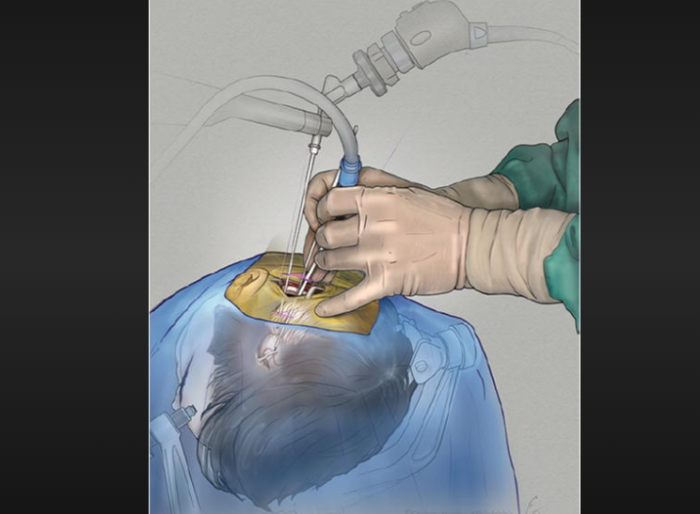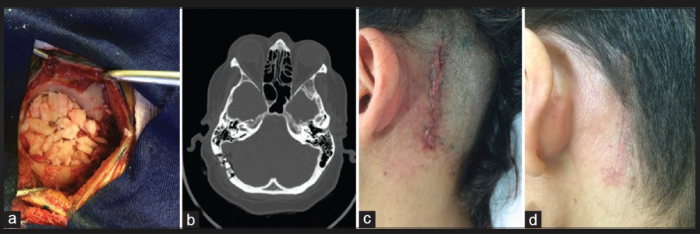Microvascular Decompression (MVD) surgery is a delicate procedure aimed at relieving symptoms of conditions such as trigeminal neuralgia and hemifacial spasm. Recovery after MVD is crucial for the success of the treatment, and patients must be prepared for various stages of healing. This blog will guide you through what to expect during your recovery process, covering everything from post-operative pain management to long-term care, ensuring you have all the information needed for a smooth transition back to everyday life.
Medical disclaimer: This content is for general awareness and does not replace a doctor’s consultation. For diagnosis or treatment decisions, consult a qualified specialist.

What is Microvascular Decompression Surgery?
Microvascular Decompression (MVD) surgery is a procedure used to relieve pressure on cranial nerves, often caused by blood vessels compressing the nerves. This surgery is commonly performed to treat conditions like Trigeminal Neuralgia and Hemifacial Spasm.
Who Needs Microvascular Decompression Surgery?
Patients suffering from severe nerve pain due to nerve compression, particularly in the face or head, are prime candidates for MVD surgery. It is usually recommended when medications fail to provide adequate relief.
Pre-Surgical Consultation: What to Expect
During the pre-surgical consultation, your doctor will evaluate your medical history, perform necessary tests, and discuss the potential benefits and risks of MVD surgery. This is a crucial step to ensure you’re a suitable candidate for the procedure.
How to Prepare for MVD Surgery
Preparing for surgery involves following your doctor’s instructions, such as stopping certain medications and preparing for your hospital stay. Additionally, maintaining a positive mindset can help ensure a successful recovery after Microvascular Decompression surgery.
The Surgical Procedure: Step-by-Step Guide
The MVD surgery is performed under general anesthesia. The surgeon makes a small incision behind the ear, moves the blood vessel away from the nerve, and places a soft cushion between the nerve and the vessel. The incision is then closed with stitches.

What Happens After Microvascular Decompression Surgery?
Post-surgery, you’ll be monitored in the recovery room to ensure there are no complications. Pain relief is often immediate for many patients, though some discomfort or numbness may persist for a few days after surgery.

Managing Pain After Surgery: Tips for Comfort
Some level of discomfort is common after MVD surgery. To manage pain, your doctor may prescribe pain medications, and applying cold compresses to the area can help reduce swelling.
Importance of Follow-Up Care After MVD Surgery
Attending all follow-up appointments is essential for monitoring your recovery. During these visits, your doctor will check the incision, assess healing, and adjust any medications if necessary.
Physical Rehabilitation and Therapy Post-Surgery
Some patients may need physical therapy after surgery to help regain strength and mobility. Physical rehabilitation can speed up recovery and prevent complications.
How Long Does It Take to Recover from MVD Surgery?
Recovery from Microvascular Decompression surgery varies but typically takes about 6 to 12 months. Most patients experience significant improvements within the first few weeks, but full recovery can take longer.
Complications to Watch for After Surgery
While MVD surgery is generally safe, potential complications include infection, bleeding, or nerve damage. Report any unusual symptoms to your doctor immediately to avoid long-term problems.
Is It Normal to Experience Numbness After MVD Surgery?
Some level of numbness is common after MVD surgery, particularly around the surgical site. This usually resolves within a few weeks, though in some cases it may persist for longer.
When Can I Resume Normal Activities?
Patients can typically resume light activities within 2 to 4 weeks of surgery, though more strenuous activities should be avoided for at least 6 weeks or until your doctor clears you for such activities.
Best Microvascular Decompression (MVD) Treatment in India
The Best MVD Treatment in India is performed by expert neurosurgeons who use advanced techniques to relieve nerve compression, providing a customized treatment plan to ensure optimal patient outcomes.
Microvascular Decompression (MVD) Surgery Cost in India
When considering the microvascular decompression (mvd) surgery cost in india, patients benefit from transparent pricing and cost-effective treatment options at leading hospitals, without compromising on the quality of care.
How Soon Can I Return to Work After Surgery?
Most people can return to work within 2 to 4 weeks, depending on the nature of their job and how they feel. Jobs that involve heavy lifting or physical labor may require a longer recovery period.
Managing Anxiety and Depression After Surgery
It’s not uncommon for patients to feel anxious or depressed after surgery. Talk to your doctor about any emotional struggles, as they may recommend counseling or medications to help you cope.
Sleep Tips for a Better Recovery
Good sleep hygiene is essential for recovery. Sleep on your back with your head elevated to reduce swelling and discomfort. Avoid caffeine and create a calming bedtime routine to improve sleep quality after MVD surgery.
Caring for Your Incision Site After MVD Surgery
Keeping your incision site clean is essential for preventing infection. Follow your doctor’s instructions on how to care for the wound, and avoid touching or scratching the area.
How to Tell if Your Surgery Was Successful
Most patients experience immediate relief after MVD surgery. If your symptoms significantly improve or disappear, it’s a good sign the surgery was successful. However, some patients may need a few weeks to see full results.
Monitoring for Recurrence of Symptoms
While Microvascular Decompression surgery is highly effective, there is a small chance that symptoms may return in the future. Regular follow-up appointments are essential for monitoring any recurrence of symptoms.
Speech and Swallowing Difficulties After MVD Surgery
Some patients may experience temporary issues with speech or swallowing after surgery. These usually resolve with time, but consult a speech therapist if problems persist.
Adjusting to Lifestyle Changes After Microvascular Decompression
After MVD surgery, you may need to adjust to new lifestyle habits, such as dietary changes, exercise modifications, and stress management techniques, to promote better health and long-term recovery.
When to Seek Help: Recognizing Serious Signs of Post-Surgical Problems
If you notice severe pain, swelling, or fever, seek medical help immediately, as these may indicate serious post-surgical complications. Early intervention is key to preventing further issues.
Support Systems and Resources for Patients
Having a strong support system, such as family, friends, or a support group, is crucial for mental and emotional well-being during your recovery. Don’t hesitate to reach out for help when needed.
Cost of Microvascular Decompression Surgery in India
The cost of MVD surgery in India can vary widely depending on the hospital and surgeon. On average, the procedure costs between INR 2,00,000 and INR 5,00,000, including hospital stay and surgeon fees.
Choosing the Best Surgeon for MVD Surgery
When selecting a surgeon, look for someone with extensive experience in performing Microvascular Decompression surgery. Research their credentials, success rates, and patient reviews before making a decision.
Success Rate of Microvascular Decompression Surgery
The success rate of MVD surgery is generally high, with most patients experiencing significant or complete relief from symptoms. The overall success rate is around 80% to 90%.
What are the risks of Microvascular Decompression surgery?
The risks of MVD surgery include bleeding, infection, and nerve damage, though serious complications are rare when performed by an experienced surgeon.
How long does the surgery take?
The surgery typically takes between 2 to 3 hours, depending on the complexity of the case.
Will I need to stay in the hospital after surgery?
Yes, most patients stay in the hospital for 2 to 3 days after surgery for monitoring and initial recovery.
Can MVD surgery cure Trigeminal Neuralgia completely?
In most cases, MVD surgery provides significant relief or complete cure for Trigeminal Neuralgia, with success rates up to 90%.
How long before I can resume normal activities?
You can usually resume light activities within 2 to 4 weeks and normal activities within 6 weeks, depending on how quickly you recover.
What should I do if my symptoms return?
If your symptoms return after surgery, consult your doctor for further evaluation and treatment options.
Can I drive after MVD surgery?
Most patients are advised to avoid driving for at least 2 weeks after surgery or until they feel well enough to do so safely.
What is the success rate of MVD surgery?
The success rate of MVD surgery is high, with around 80% to 90% of patients experiencing significant symptom relief.
Can MVD surgery be done more than once?
In rare cases, MVD surgery can be repeated if symptoms recur, though this is usually a last resort.
What is the recovery time for MVD surgery?
Full recovery from MVD surgery can take 6 to 12 months, though most patients experience improvement within the first few weeks.